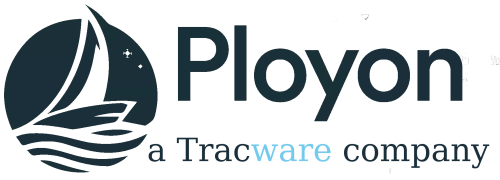MDGB
Welcome to the Master Data Governance Board (MDGB), Ployons driving force behind data standards and governance in the maritime industry. Just like a symphony conductor brings together talented musicians to create a harmonious performance, the MDGB unites Owners, MROs, and OEMs to establish and maintain consistent data standards. Our purpose is clear: to foster collaboration, efficiency, and standardization across the industry.
Where We Are
At Ployon, we understand that data is the lifeblood of the maritime industry. By setting and maintaining data standards, we ensure that information flows seamlessly, enabling Owners, MROs, and OEMs to work together effectively. Our aim is to enhance operational efficiency, promote safety, and drive innovation by establishing a common language and framework for data management. That is the purpose of the MDGB. Through the MDGB, we create a platform where stakeholders can collaborate, communicate, and access reliable data. By aligning our efforts, we enable better decision-making, streamline processes, and optimise resource utilisation. Together, we strive to elevate the maritime industry to new heights of efficiency and standardisation. Join us on this transformative journey as we harness the power of data and orchestrate a symphony of collaboration and progress. Together, we can shape the future of the maritime industry and navigate towards success. Remember, at Ployon, we believe that when we synchronise our data standards, we create a harmonious and efficient industry. The MDGB will be the mechanism that we will use to accomplish this. Let's join forces and make waves in the maritime world!
Brass Tacks
The MDGB serves as a central body, shaping the flow of information across the industry. It provides an industry agreed to standardised model for managing master data and promotes transparency in data sharing. By participating in the MDGB, OEM(s), Vessel Manufacturers, vessel owners, operators, and maintenance service providers contribute to a collaborative ecosystem that enables accurate maintenance information while safeguarding competitive advantages and intellectual property.
What exactly does the MDGB do in the maritime industry?
The MDGB, or Master Data Governance Board, plays a crucial role in the maritime industry by establishing and maintaining data standards. Think of it as a conductor in an orchestra, but instead of harmonising music played, it harmonises the standards for displaying notes on the page. This is the flow of data across the industry. By setting these standards, the MDGB ensures that information can flow smoothly and consistently between different parties in the industry, such as Owners, MROs (Maintenance, Repair, and Overhaul companies), and OEMs (Original Equipment Manufacturers).
This consistency allows these different entities to work together more effectively because they're all "speaking the same language" in terms of data. This leads to better decision-making, streamlined processes, and more optimal use of resources. In essence, the MDGB is all about promoting collaboration, efficiency, and standardisation across the maritime industry through the power of well-governed data.
Why is data standardisation so important for Owners, MROs, and OEMs?
A key part of Ployon's mission through the MDGB is to provide those who create the maritime products we use – from shipbuilders to equipment manufacturers – with the ability to deeply understand the performance and reliability of their products. This understanding isn't just about knowing when and where things are functioning well, but also about identifying where they fall short or could be improved.
To do this effectively, standardisation of data format and relationships is critical. When data is standardised, it allows for comprehensive and meaningful analysis across different systems and platforms, thereby enabling accurate comparisons and bench-marking. This, in turn, can help reveal patterns, trends, and potential issues that might otherwise go unnoticed.
Moreover, standardisation facilitates the anonymised reporting of failures or issues. This is crucial because it provides a way to share valuable insights and lessons learned without compromising the privacy or competitive positioning of the individual organisations involved.
In essence, Ployon, through the MDGB, is striving to create a framework that promotes transparency, accountability, and continuous improvement in the maritime industry, all of which contribute to enhancing safety and reliability on the water.
Can you give some examples of how data standards have improved safety and efficiency in the maritime industry?
At this point, no. There has been very few studies outside of individual corporations to adopt standardisation of data. Internationally the maritime organisation is largely governed by treaties, with the lack of a central “authority” the “forcing” function has been limited. This isn’t to suggest that forcing is necessary, cooperation and collaboration will more than suffice. Ployon is a member of the Tracware family of companies, which has been very active in the aviation community for over 20 years. If we look to the aviation and other industries we can see parallels to what we are attempting here with the MDGB.
Standardisation in Aircraft Maintenance Manuals Data standards in aircraft maintenance manuals, such as the S1000D, can greatly enhance the safety and efficiency of operations. Automated auditing of these manuals ensures that the content is correctly structured and aligned with the standard. By using a combination of manual and automated QA processes, operators can ensure that the manuals are reliable and that they correctly guide maintenance procedures, thus enhancing safety. Additionally, proper tagging of tables and images, correct mapping of legacy titles or paragraph headings to data module types and codes, and handling of applicability usage are all aspects that are improved with standardisation, leading to better efficiency and safety in the long run 1.
Standardisation in Healthcare Information Technology Although not directly related to aviation or maritime, there are useful parallels in the healthcare industry. For instance, St. Stephen's Hospital leveraged health information and technology standardisation to improve outcomes. They reduced medication administration variance, improved data access through an integrated environment, and reduced length of stay for patients in orthopaedic settings. This was achieved through standardising various processes, leveraging healthcare data analytics, and embedding best practices into their systems 2.
ICAO Data Standards The International Civil Aviation Organisation (ICAO) employs data standards to improve decision-making in the aviation industry. Through the collection, analysis, and dissemination of standardised civil aviation data, stakeholders can make better projections, control costs and risks, improve business valuations, and benchmark performance. The ICAO has developed tools like ICAO Data Plus and ICAO eTools, which present aviation data in a dynamic and graphical environment, allowing users to quickly identify patterns, trends, and differences. This enhances both safety, by allowing for better informed decision-making, and efficiency, by enabling the aviation industry to control costs and benchmark performance 3.
How can I, as a stakeholder in the maritime industry, participate in or contribute to the MDGB?
As a stakeholder in the maritime industry, your participation and contribution to the Master Data Governance Board (MDGB) can be invaluable. Here's how you can get involved:
- Join the MDGB: The first step is to formally join the MDGB. This usually involves contacting Ployon and expressing your interest in joining. They'll guide you through the membership process.
- Attend Meetings and Events: Once you're a member, you can start attending MDGB meetings and events. These sessions provide an excellent platform to share your thoughts, hear from other industry leaders, and collectively make decisions that shape data standards.
- Contribute to Discussions and Initiatives: Don't just attend meetings – actively participate in them. Your insights, experiences, and perspectives can contribute significantly to discussions and initiatives. Remember, the MDGB is all about collaboration.
- Share Your Data: One of the most significant contributions you can make is to share your data. By feeding your data into the MDGB's standardised system, you're helping to create a more comprehensive and accurate picture of the industry, and ensuring owner operators have the most current information available. Of course, this will always be done in accordance with all applicable privacy and data security regulations.
- Implement MDGB Standards: Finally, implement the standards established by the MDGB in your own operations. This not only benefits your organisation by improving efficiency and safety, but it also reinforces the value and importance of the MDGB's work.
Remember, your contribution to the MDGB can help shape the future of the maritime industry. Your participation ensures that the standards developed are practical, effective, and beneficial for all stakeholders.
What future plans does the MDGB have to further enhance data standardisation and collaboration in the maritime industry?
As the initiators of the MDGB, Ployon has a significant role in setting up the structure for collaboration and standardisation within the maritime community. Our immediate goal is to establish a universally agreed upon data standard that facilitates seamless information exchange among all stakeholders. However, as the community becomes more responsive and the adoption of these standards increases, our role in the MDGB will gradually decrease. This is because we firmly believe that it's the collective input from the community that truly shapes the industry, not the influence of a single organising entity.
While we will always remain as a stakeholder and contributor, our vision is to see the MDGB evolve into a community-led entity. We're committed to fostering an environment where every member has a say in the future of maritime data standards, and we're excited about the innovative potentials this collective effort can unlock.
Where we are going
The MDGB is at the very heart of the Ployon eco-system. We will be expanding this section to include information on our data standards and decision processes. As time goes on the minutes of meetings will be posted along with a record of decisions. This Board, while being initiated by Ployon, belongs to the Maritime community. So stay tuned and register your interest below. Looking forward to hearing from you.
Register your interest in the MDGB to be part of our newsletter and receive updates on our progress here.


